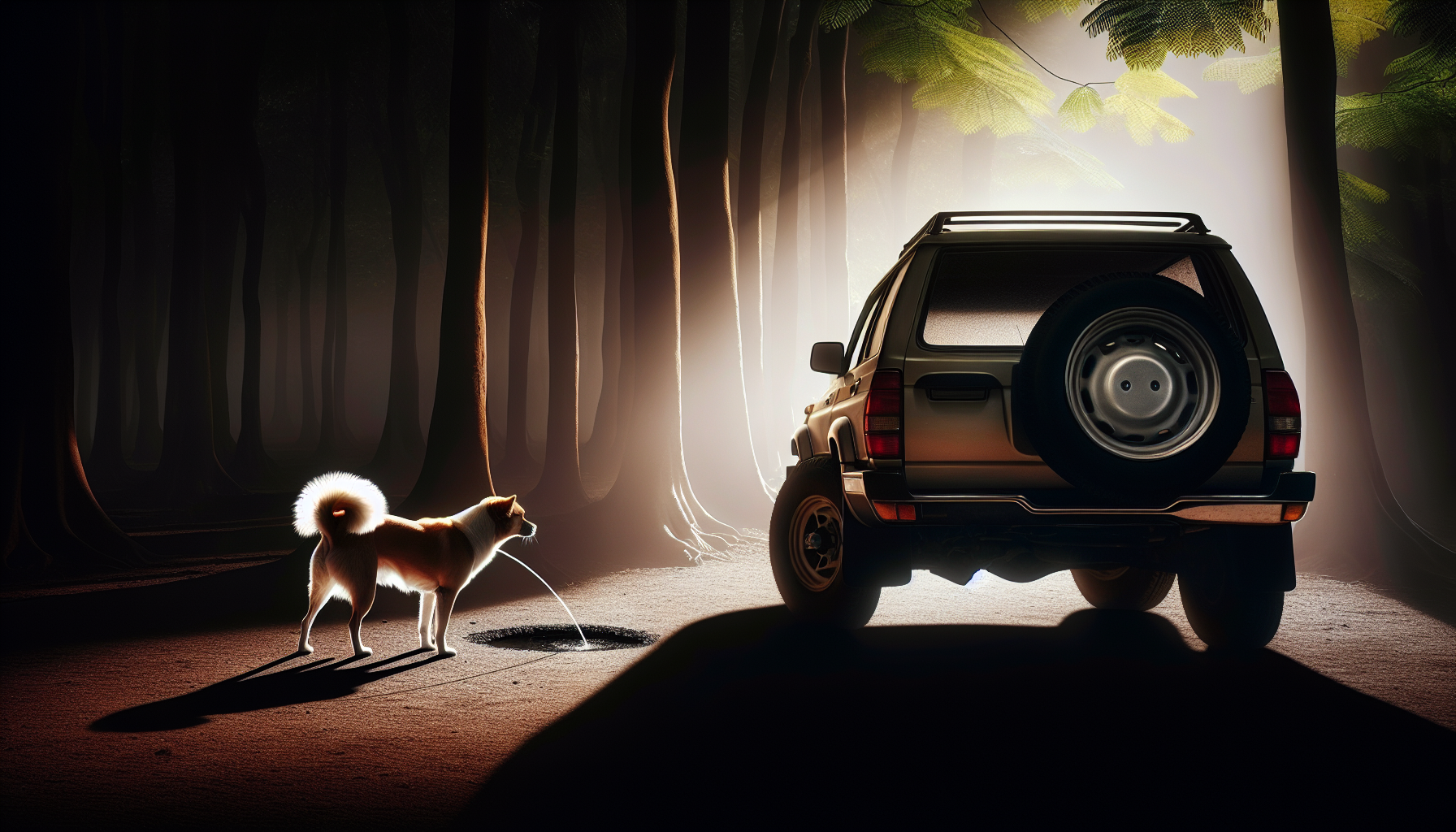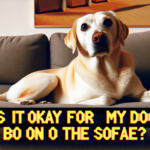Contents
Understanding the Behavior of Dogs
The Basics of Dog Behavior
Dogs are fascinating creatures with complex and unique behaviors. Understanding their behavior is crucial for anyone who owns or interacts with them. By gaining insight into why dogs behave the way they do, we can better meet their needs and strengthen our bond with them.
Social Structure and Pack Mentality
Dogs are pack animals by nature, and it’s essential to comprehend their social structure and pack mentality. In the wild, dogs live in packs led by an alpha, or dominant, individual. This hierarchical structure influences their behavior when living in a human household.
Communication and Body Language
Dogs communicate primarily through body language. Understanding their nonverbal cues can help us interpret their emotions and intentions accurately. Some common signals include tail wagging, ear position, eye contact, and vocalizations. By paying attention to these cues, we can better understand and respond to our canine companions.
Separation Anxiety
Separation anxiety is a common behavioral issue in dogs that can cause distress for both the dog and its owner. It occurs when dogs become anxious or stressed when separated from their owners. Understanding the symptoms and causes of separation anxiety can help us address this behavior and provide appropriate solutions.
Aggression and Fear
Aggression and fear are natural instincts in dogs, but it’s crucial to identify the underlying causes behind these behaviors. Fear-based aggression can stem from past traumas or lack of socialization, while possessive aggression may occur due to resource guarding. By understanding the root causes, we can work on training and behavior modification to help our dogs overcome these issues.
Positive Reinforcement Training
Positive reinforcement training is a highly effective method for shaping desired behaviors in dogs. By rewarding good behavior with treats, praise, or play, we can encourage our dogs to repeat those behaviors. Understanding the principles of positive reinforcement can make training sessions more enjoyable and successful for both dogs and their owners.
Common Behavioral Problems
Understanding common behavioral problems in dogs can help us address them proactively. Issues like excessive barking, chewing, or digging often stem from underlying causes such as boredom, anxiety, or lack of exercise. Identifying these problems early on and implementing appropriate solutions can prevent them from escalating into more significant issues.
Seeking Professional Help
In some cases, managing and understanding dog behavior may require the assistance of a professional trainer or behaviorist. These experts can provide valuable insights and techniques tailored to your dog’s specific needs. Don’t hesitate to seek professional help when necessary to ensure your dog’s well-being and improve their behavior.
Understanding the behavior of dogs is an ongoing process that requires patience, observation, and a willingness to adapt. By gaining knowledge about their social structure, communication, and common behavioral issues, we can provide the care and attention our dogs deserve. Building a strong bond with our canine companions not only enhances their quality of life but also enriches ours.
Factors That Encourage Dogs to Urinate on Car Wheels
Factors That Encourage Dogs to Urinate on Car Wheels
Dogs are known for their natural instincts and behaviors. One common behavior that can be frustrating for car owners is when dogs choose to urinate on car wheels. This behavior can be caused by various factors, and understanding them can help us address the issue effectively. In this article, we will explore the factors that encourage dogs to urinate on car wheels and provide some practical solutions to prevent this behavior.
Territorial Marking
One of the primary reasons dogs urinate on car wheels is to mark their territory. Dogs have a highly developed sense of smell, and by urinating on car wheels, they are leaving a scent that signifies their presence and ownership. This behavior is more common in male dogs, as they tend to be more territorial and have a stronger urge to mark their surroundings. Neutering or spaying your dog can help reduce this behavior.
Convenient Target
Car wheels provide a convenient target for dogs to relieve themselves. The odor and texture of the tires may attract dogs, especially if they are not provided with a dedicated bathroom area. If your dog spends a lot of time around cars, whether at home or during walks, they may perceive car wheels as an acceptable spot to urinate. Ensuring that your dog has access to a designated bathroom area can help redirect their behavior.
Attracted by Other Scents
Dogs have a keen sense of smell and are attracted to various scents. It’s possible that other animals, such as rodents or other dogs, have marked the car wheels with their scent. This can entice your dog to mark over those scents or, in some cases, investigate the source of the scent. Regularly cleaning your car wheels with a pet-friendly cleaner can help remove any existing scents and discourage dogs from urinating on them.
Underlying Health Issues
Sometimes, dogs may exhibit abnormal urination behaviors due to underlying health issues. If your dog suddenly starts urinating on car wheels, it’s essential to consult your veterinarian to rule out any medical conditions. Urinary tract infections or bladder problems can cause dogs to urinate in unusual places, such as car wheels. Treating any medical issues will help address the behavior problem.
Preventing and Addressing the Behavior
To prevent dogs from urinating on car wheels, consider the following strategies:
1. Provide a designated bathroom area: Set up a specific spot in your yard where your dog can relieve themselves. Consistently redirecting them to this area will help eliminate the habit of urinating on car wheels.
2. Clean the car wheels regularly: Use a pet-friendly cleaner to remove any scents that may attract dogs. By keeping the car wheels clean and scent-free, you can discourage dogs from urinating on them.
3. Positive reinforcement: When your dog uses the designated bathroom area, reward them with treats and praise. Positive reinforcement will help reinforce the desired behavior and make it more likely to continue.
4. Consult a professional dog trainer: If the behavior persists despite your efforts, consider seeking guidance from a professional dog trainer. They can provide specific training techniques to modify the behavior effectively.
Conclusion:
Understanding the factors that encourage dogs to urinate on car wheels is the first step in addressing this behavior. By providing a designated bathroom area, regularly cleaning the car wheels, and seeking professional help if needed, you can prevent this frustrating behavior and ensure a pleasant car ownership experience. Remember, patience and consistency are key when modifying any dog’s behavior.
Scent Marking and Territorial Behavior in Dogs
Dogs are fascinating creatures, known for their unique behaviors and communication methods. One such behavior is scent marking, which plays a crucial role in their territorial behavior. In this article, we will explore the concept of scent marking and how it relates to a dog’s territorial instincts.
What is Scent Marking?
Scent marking is the act of leaving a scent or a pheromone signal on various surfaces as a way for dogs to communicate with other animals. It is a natural instinct and serves as a method for them to claim and protect their territory.
Reasons for Scent Marking
There are several reasons why dogs engage in scent marking:
- Territory Claim: By marking their surroundings with their unique scent, dogs delineate their territory and let other animals know that the area is already taken. This behavior helps prevent potential conflicts and maintains boundaries.
- Social Signaling: Scent marking also serves as a form of social signaling. It provides information about the dog’s identity, gender, reproductive status, and even emotional state. Other dogs can decipher these messages through their sense of smell.
- Reproductive Purposes: Male dogs may scent mark to attract females, especially during breeding seasons. Their urine contains pheromones that can convey their availability and genetic information.
- Exploration: Dogs often mark while exploring unfamiliar territories to leave a trail for navigation or to communicate their presence to other animals.
Common Scent Marking Behaviors
Dogs have various ways of scent marking, and these behaviors can include:
- Urinating: The most common method of scent marking is through urination. Dogs, especially males, lift their legs to target vertical surfaces such as trees, lampposts, or fire hydrants. This behavior allows their scent to be more noticeable and helps them establish their territory.
- Scraping or Digging: Some dogs may scrape or dig the ground after urinating to further spread their scent. This behavior is particularly common among female dogs.
- Butt sniffing: When dogs encounter each other, they often sniff each other’s rear ends. This behavior allows them to gather information about the other dog’s scent, including their territory markings and individual characteristics.
- Rubbing against objects: Dogs may rub their bodies or face against furniture, walls, or other objects. This behavior helps transfer their scent onto the surfaces and assert their presence.
Managing Scent Marking Behavior
While scent marking is a natural behavior for dogs, it can become problematic in certain situations. Here are some tips for managing scent marking behavior:
- Neutering or spaying: In some cases, having your dog spayed or neutered can reduce the urge to scent mark, especially if it’s primarily driven by reproductive purposes.
- Positive reinforcement: Reward your dog when they choose not to scent mark in inappropriate areas. Use treats or praise to reinforce good behavior.
- Provide appropriate marking opportunities: Designate specific areas in your yard or on walks where your dog can safely and appropriately engage in scent marking.
- Manage exposure: If your dog reacts strongly to the scent marks left by other animals, avoid areas heavily frequented by other dogs.
Scent marking is a natural behavior for dogs that serves various purposes, including territory claim and social communication. Understanding this instinctual behavior can help dog owners better manage and address any potential issues related to scent marking. Remember, a dog’s sense of smell is their primary way of experiencing the world, so it is important to respect and allow them to engage in this natural behavior within appropriate boundaries.
Tips to Prevent Dogs from Urinating on Car Wheels
Having a dog that constantly urinates on your car wheels can be frustrating and damaging. Not only does it leave an unpleasant odor and stains, but it can also lead to corrosion and damage to the wheels. Fortunately, there are several effective tips you can follow to prevent your dog from marking its territory on your car.
1. Provide Adequate Outdoor Space
Dogs often urinate on car wheels when they don’t have enough space to relieve themselves. Make sure to provide your dog with a designated outdoor area where it can freely go to the bathroom. This can be a fenced-in yard or a specific spot in your backyard. By giving them a proper space, you minimize the chances of them targeting your car wheels.
2. Establish a Regular Bathroom Schedule
Creating a routine for your dog to go to the bathroom can help prevent accidents near your car. Take your dog out for walks at regular intervals throughout the day, including first thing in the morning, after meals, and before bedtime. This will ensure that they have the opportunity to relieve themselves before coming in contact with your car.
3. Use Natural Repellents
There are several natural repellents available that can deter your dog from urinating on your car wheels. Citrus peels, vinegar solutions, and specific essential oils like lavender or peppermint can be sprayed around the tires or on the ground near the car. The strong scents will discourage your dog from approaching and marking the area.
4. Train Your Dog with Positive Reinforcement
Training your dog to avoid urinating on car wheels requires patience and positive reinforcement. Whenever you catch them attempting to mark the tires, interrupt the behavior with a firm “no” and redirect their attention to a more appropriate spot. Reward them with treats or praise when they comply, reinforcing the desired behavior.
5. Utilize Physical Barriers
Consider using physical barriers such as fences, gates, or barriers specifically designed to prevent dogs from accessing your car. These barriers can effectively block your dog’s access to the car wheels, reducing the likelihood of them urinating on them. Remember to secure the barrier properly to avoid any accidents or injury.
6. Keep Your Car Clean
Eliminating any lingering scent of urine on your car wheels is crucial in preventing your dog from returning to mark its territory. Regularly clean your car wheels with a mild detergent and water to remove any odors. Additionally, consider using a pet-safe odor neutralizer to eliminate any trace of urine that may still be present.
Preventing dogs from urinating on car wheels requires consistency, training, and providing the right environment for your furry friend. By following these tips, you can effectively discourage your dog from marking their territory on your car and keep your wheels clean and undamaged.
Remember, it’s important to be patient and understanding during the training process. With time, consistency, and positive reinforcement, you can successfully train your dog to avoid urinating on your car wheels.





